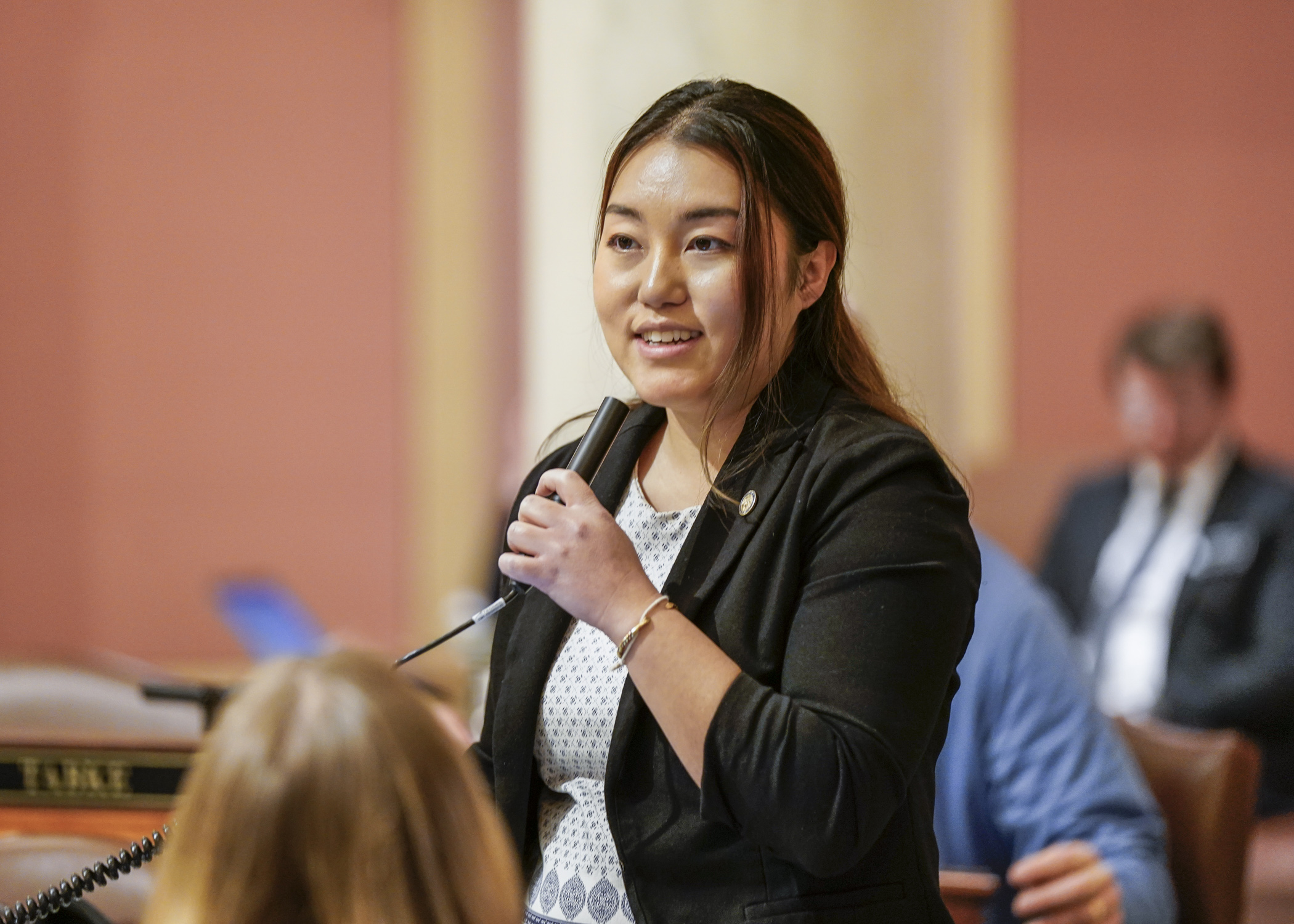Omnibus ag bill passes with security for grain farmers, changes to Board of Animal Health

Should it be signed into law, a provision that would offer grain farmers a way to get paid if their elevator goes belly up would ensure the impact of the omnibus agriculture finance bill lasts well beyond the next biennium.
A new grain indemnity fund is one provision included in HF2278/SF1955* that, as amended, was passed 70-58 along party lines by the House Thursday.
It now returns to the Senate, where the bill was initially passed 58-7 April 13.
The bill would authorize $448.4 million in agricultural spending, including $163.2 million in General Fund spending for the Department of Agriculture and $125.7 million for the Office of Broadband in the next biennium. There is $48 million in new money for farmers and an additional $100 million to expand broadband with a carve out for very low-population density areas.
[MORE: Download the spreadsheet]
“I’m proud to present a good, comprehensive, balanced budget that represents rural and urban farmers, big and small farmers, and for the environment and sustainability of agriculture,” said Rep. Samantha Vang (DFL-Brooklyn Center). She and Sen. Aric Putnam (DFL-St. Cloud) are the sponsors. “Whether it is protecting farmers, ensuring our soil remains healthy or providing food for every Minnesotan, we are making sure Minnesota remains a national leader.”
In addition to making comprehensive investments in food, land and farmers, Vang said it would also expand the capacity of the Agriculture Department to help farmers. Funding is included to hire a climate coordinator and an additional member to the department’s one-person international marketing team.
Rep. Kristi Pursell (DFL-Northfield) said the climate coordinator position would help bring federal dollars to the state, ensure farmers have a seat at the table during climate action plan conversations and help growers gain resiliency in the face of unpredictable weather events.
Vang said the bill’s legacy would be creation of a grain indemnity fund, an insurance policy for sellers if a grain elevator goes out of business. The bill would provide $5 million to establish the fund, which going forward would be built up through farmers’ participation premiums.
During committee hearings, farmers shared stories of losing hundreds of thousands of dollars following high-profile bankruptcies.
While many Republicans support that provision and others, such as soil health improvements and meat processing training grants, they take issue with spending priorities, possible changes to regulations on pesticide treated seeds and, especially, possible changes to the Board of Animal Health.
“In general, the bill is more about what it does to farmers than what it does for them,” Rep. Paul Anderson (R-Starbuck) said in a statement. “There is a net increase of $13.6 million in fees, along with a provision that takes away tools farmers use to grow crops.”
He’s concerned Minnesota could become an island with regards to pesticide-treated seed use.
A provision provoking strong Republican opposition would increase membership in the Board of Animal Health from six members to 11, have one member from each Congressional district, allow membership beyond veterinarians and livestock producers, and allow the governor to appoint board’s executive director.
Rep. John Burkel (R-Badger) said the provision would unnecessarily politicize a board which has the authority to order animal quarantines and depopulation.
Omnibus policy
The House also passed an omnibus agriculture policy bill, as amended, 87-39. Also sponsored by Vang, HF1587, now heads to the Senate.
Provisions would streamline Department of Agriculture enforcement of regulations on dairy, genetically modified organisms and nursery stock, tighten requirements on pollinator friendly labels, and prohibit nondisclosure clauses in carbon capture contracts.
Related Articles
Search Session Daily
Advanced Search OptionsPriority Dailies
Speaker Emerita Melissa Hortman, husband killed in attack
By HPIS Staff House Speaker Emerita Melissa Hortman (DFL-Brooklyn Park) and her husband, Mark, were fatally shot in their home early Saturday morning.
Gov. Tim Walz announced the news dur...
House Speaker Emerita Melissa Hortman (DFL-Brooklyn Park) and her husband, Mark, were fatally shot in their home early Saturday morning.
Gov. Tim Walz announced the news dur...
Lawmakers deliver budget bills to governor's desk in one-day special session
By Mike Cook About that talk of needing all 21 hours left in a legislative day to complete a special session?
House members were more than up to the challenge Monday. Beginning at 10 a.m...
About that talk of needing all 21 hours left in a legislative day to complete a special session?
House members were more than up to the challenge Monday. Beginning at 10 a.m...